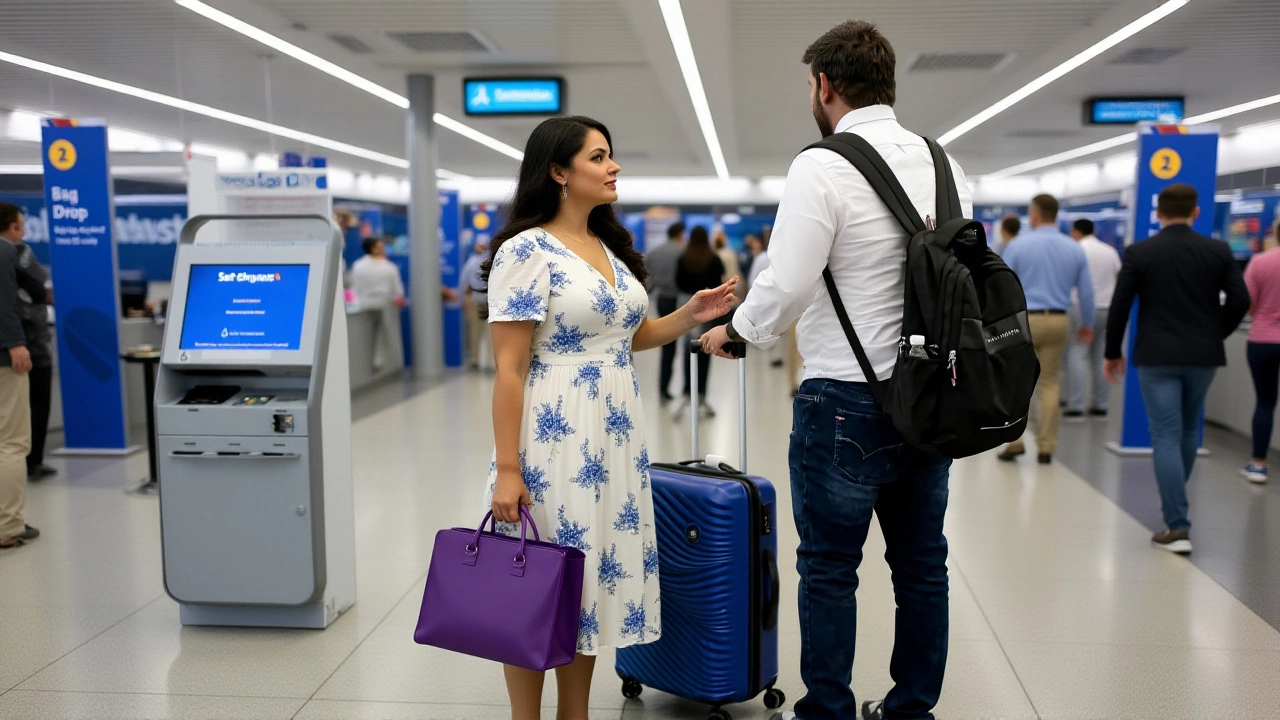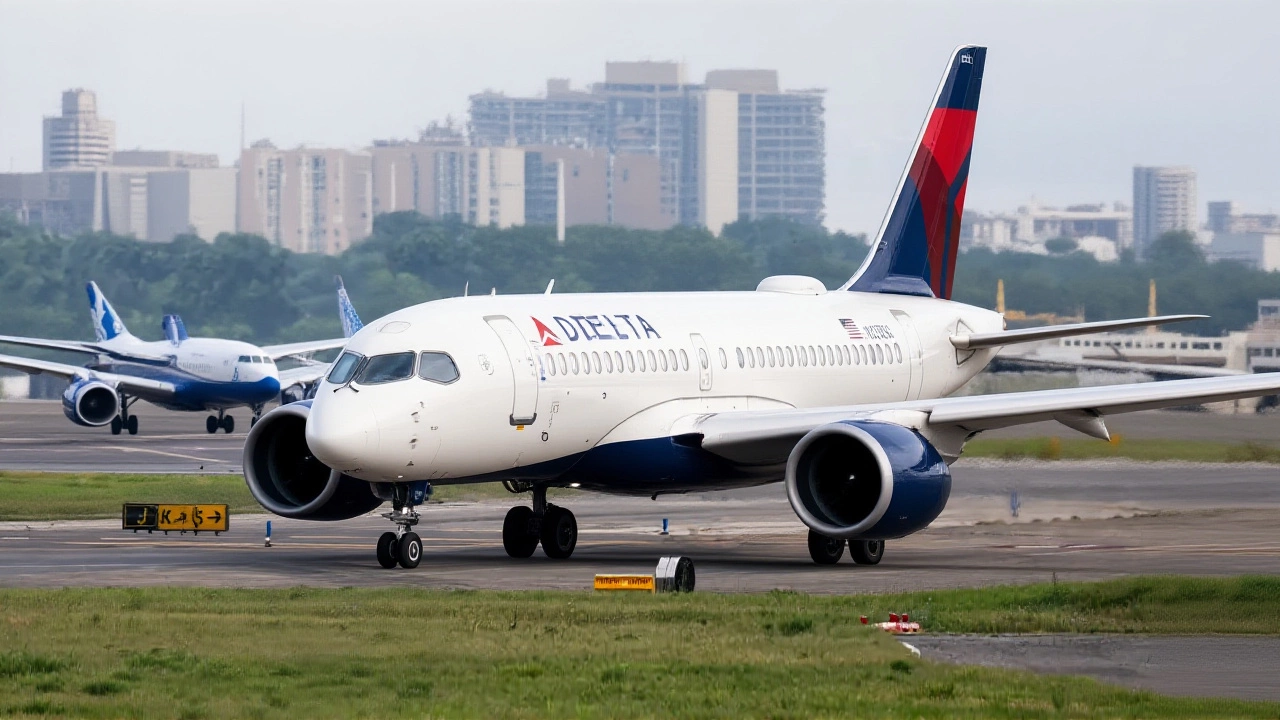When Delta Air Lines confirmed it would permanently discontinue service to Midland International Air and Space Port (MAF) after , the news hit the West Texas travel community like a sudden gust of wind.
The carrier’s three‑daily Austin‑Midland schedule, which launched in April 2024, will vanish on that date, ending a little‑over‑a‑year of nonstop connections between the two Texas cities.
Delta’s own filings cite “capacity alignment” and “low demand” as the primary reasons, but the airline slipped the change into a quiet internal memo rather than a public press release, leaving frequent flyers scrambling for alternatives.
- Effective date:
- Routes affected: Austin (AUS) ↔ Midland (MAF) – 3 daily flights
- Delta’s Q2 2025 net profit: up 12 % YoY
- New Austin‑Mexico routes begin:
- Midland airport plans $30 million terminal expansion
Why Delta Is Pulling Out of Midland
Chief Executive Officer Edward Bastian highlighted the move during Delta’s second‑quarter 2025 earnings call, noting that the company is “adjusting our capacity to match demand” after reporting a 12 % rise in net profit. The airline’s data team showed that the Austin‑Midland segment averaged only 63 % load factor, well below the 80 % benchmark Delta sets for regional routes.
Midland International Air and Space Port, which handled roughly 250,000 passengers in 2024, has long relied on a handful of legacy carriers. When Delta entered the market in April 2024, it hoped to capture business travelers tied to the Permian Basin oil boom. However, a dip in oil prices late‑2023 trimmed corporate travel budgets, and passenger counts fell by 12 % in the first half of 2025.
Industry analysts at Airline Weekly argue that Delta’s decision is also a signal of its broader “hub‑and‑spoke” reshuffle, where the carrier is concentrating resources around larger Texas hubs like Austin and Dallas‑Fort Worth while shedding peripheral points that don’t meet its profitability threshold.
Delta’s Contrasting Growth in Austin
Even as the Midland gate closes, the airline is widening its footprint at Austin Bergstrom International Airport. Starting , Delta will roll out daily flights to Cancún and Cabo San Lucas, two leisure destinations that have seen a 22 % surge in demand from Texas residents over the past year.
Delta is also establishing a permanent flight‑attendant base in Austin in October 2025, a move analysts say will create roughly 150 new jobs and solidify the carrier’s long‑term commitment to the market. The airline’s Austin‑to‑Mexico routes will use the new Airbus A321neo, promising lower fuel burn and a refreshed cabin experience.
Local officials, including Austin Mayor Kirk Watson, praised the expansion, noting that the new international services “connect our city to the world and keep Austin on the fast‑track of tourism growth.” The contrast between the Austin investment and the Midland pull‑out underscores how Delta is tailoring its network to where “demand clusters,” according to the airline’s network planning director, Maria Gonzales.
Wider Operational Turbulence Across Delta’s Network
Delta’s retreat comes amid a wave of disruptions across its domestic network. Live data from FlightAware shows more than 110 Delta‑operated flights canceled in the past 24 hours, with Atlanta’s Hartsfield‑Jackson International Airport alone logging 450 delay incidents in a single day.
The Federal Aviation Administration confirms that severe air‑traffic‑controller staffing shortages—exacerbated by the ongoing federal government shutdown—are a key driver of the chaos. Controllers at Atlanta, Minneapolis‑St. Paul, and Dallas‑Fort Worth have been operating with up to a 20 % reduction in staff, forcing airlines to scramble for slots.
Delta has not issued a broad cancellation advisory, suggesting the effects may stem from cascading operational issues rather than a single systemic problem. In a brief statement, a Delta spokesperson said the airline is “working closely with the FAA and airport partners to mitigate impacts and restore normal schedules as quickly as possible.”

What This Means for Travelers and the Midland Community
For passengers booked on the Austin‑Midland route after Nov 8 2025, the cancellation forces a scramble for alternatives. Competing airlines such as United and American currently operate only twice‑daily flights to Dallas‑Fort Worth, meaning travelers must add a layover to reach Midland.
City officials in Midland are actively seeking replacements. The Midland International Air and Space Port Authority announced a $30 million terminal expansion slated for 2026, aimed at attracting low‑cost carriers and establishing new gate amenities. “We won’t let one airline’s decision dictate our future,” said airport director Lisa Henson, adding that talks are already underway with Southwest and Allegiant.
Local businesses, especially those tied to the oil sector, worry about reduced connectivity. A survey by the Midland Chamber of Commerce revealed that 46 % of respondents consider the loss of Delta service a “significant hit” to their ability to bring in out‑of‑state talent.
Looking Ahead: Potential Replacements and Industry Trends
Industry watchers predict that low‑cost carriers could fill the void. Southwest’s recent 2024 announcement to add a “Sunset Route” to several West Texas cities hints at a possible move into Midland, though the airline has yet to file a slot request.
Meanwhile, Delta’s broader strategy seems to be embracing a more “hub‑centric” model, focusing on high‑yield markets and trimming routes that fall below a 70 % load factor threshold. Experts at the Aviation Insight Forum argue that this could lead to a more resilient network, but also raises concerns about reduced service to smaller communities.
Passengers should keep an eye on the FAA’s staffing updates and Delta’s quarterly network reports for clues about future route adjustments. As the airline navigates staffing woes and shifting demand, the next few months will likely reveal whether the Midland departure is an isolated case or the first domino in a larger restructuring.
Frequently Asked Questions
How will the route cancellation affect travelers from Austin to Midland?
Passengers with tickets after Nov 8 2025 will need to rebook on alternative airlines or take connecting flights via Dallas‑Fort Worth or Houston. Delta is offering vouchers for affected travelers, but the lack of nonstop options could add 2‑4 hours to the journey.
Why did Delta announce the cancellation without a press release?
The airline opted for an internal memo to avoid market speculation while finalizing internal capacity models. Critics say the quiet approach left frequent flyers blindsided, sparking frustration across travel forums.
What new services is Delta launching in Austin?
Starting Dec 20 2025, Delta will operate daily flights from Austin to Cancún and Cabo San Lucas, Mexico, using Airbus A321neo aircraft. The airline will also open a permanent flight‑attendant base in Austin in October 2025, creating around 150 jobs.
Will the FAA staffing shortage affect other airlines?
Yes. The shortage is a national issue, impacting all carriers that operate at major hubs. Expect continued delays and occasional cancellations until the federal government resolves the staffing gaps.
What are Midland officials doing to replace Delta’s service?
The Midland International Air and Space Port Authority pledged a $30 million terminal upgrade and is courting low‑cost carriers like Southwest and Allegiant. Negotiations are early, but officials hope to have at least one new airline by mid‑2026.

Write a comment